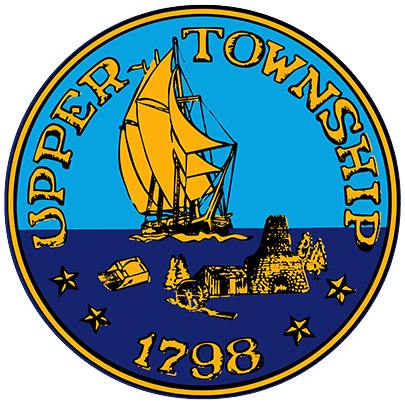Emergency Management
Special message (Hurricane):
View A Current Hurricane Tracking Map
Details
Mission
In cooperation with our partners, we are committed to enhancing the quality of life in Upper Township, New Jersey by assisting people to effectively prepare for, respond to, recover from, and mitigate against all hazards and disasters.
Vision
Through the use of verifiable data, operate efficiently, formulate sound public policy, and enhance public awareness.
The Emergency Management Division is one of nine agencies within the Township of Upper Office of Emergency Management . The division, created by the Emergency Management Act of 1977, is responsible for protecting the people of the Township of Upper from the effects of disasters, natural and manmade. It was reorganized in 1997 into functional unites, using the “Incident Command system (ICS)”, the national model for managing emergency operations. This organizational structure mirrors the local incident command structure and the federal Emergency Response Team structure, thus streamlining and simplifying intergovernmental coordination. The six major functional sections are Public Information, Hazard Mitigation, Operations, Logistics, Information and Planning, and Finance.
From the Upper Township Hall Complex, the Office of Emergency Management responds quickly to support local government emergency operations. The Emergency Management Coordinator and Deputies are trained and equipped with state-of-the-art equipment to rapidly respond to the scene of an emergency to coordinate the delivery of municipal assistance. The resources of the Township of Upper can be available within a matter of minutes to assist our local government.
The work of the Upper Township Office of Emergency Management includes a four phase approach: preparedness, response, recovery and mitigation.
Preparedness
As part of the division’s mission to protect public safety, public awareness and information programs are conducted throughout the year, including “The Emergency Preparedness Symposium” and “Severe Weather Awareness Week,” which are conducted in cooperation with other local, state, federal, and private sector organizations. The UPPER OEM regularly places exhibits at shopping centers and conventions, and presents programs to interested civic groups. The UPPER OEM also conducts workshops on specific threats, such as hurricanes and terrorism, for governmental officials and emergency personnel. The UPPER OEM provides literature, audio-visual materials and speakers to promote hazard awareness and risk reduction.
Planning
The members of your UPPER Emergency Management office work as a team to identify and analyze the hazards that may threaten this community, and operations plans are developed accordingly. Emergency Operations Plans address the predictable consequences of disasters, i.e., isolated communities, lost power, downed trees — regardless of the hazard (hurricane, tornado, earthquakes, nuclear power incidents, and terrorism). These consequences are addressed through functional planning. Functional planning allows emergency planners to focus on operational tactics such as evacuation coordination, shelter operations, search and rescue, power restoration, debris removal, and donated goods. Exercises, ranging from tabletop versions to full-scale mock accidents involving multiple counties, are conducted to validate these state and local operations plans. The UPPER OEM regularly participates with local, state and federal agencies and utilities to test their emergency plans.
Visit our Hazard Mitigation Page for more information.
Training
Training and education programs are also developed and coordinated through the Township. The UPPER OEM regularly conducts classes on such topics as hazardous materials, search operations, emergency response operations, recovery operations, hazard mitigation and public information.
Hazard awareness and emergency preparedness information are critical to the public.
Alert & Warning
The Emergency Alert System (EAS), is a cooperative effort between emergency management and commercial broadcasters across the County. New Jersey radio and television stations voluntarily give broadcast time to alert the public when threats become imminent. Such valuable information aids in saving lives, reducing injuries and lessening the impact on property.
Department Contact Info:
-
Mike Jones, CPWM
Asst. Public Works Superintendent, Deputy Emergency Management Coordinator1691 Mt. Pleasant - Tuckahoe Rd Tuckahoe, NJFAX: (609) 628-2133
